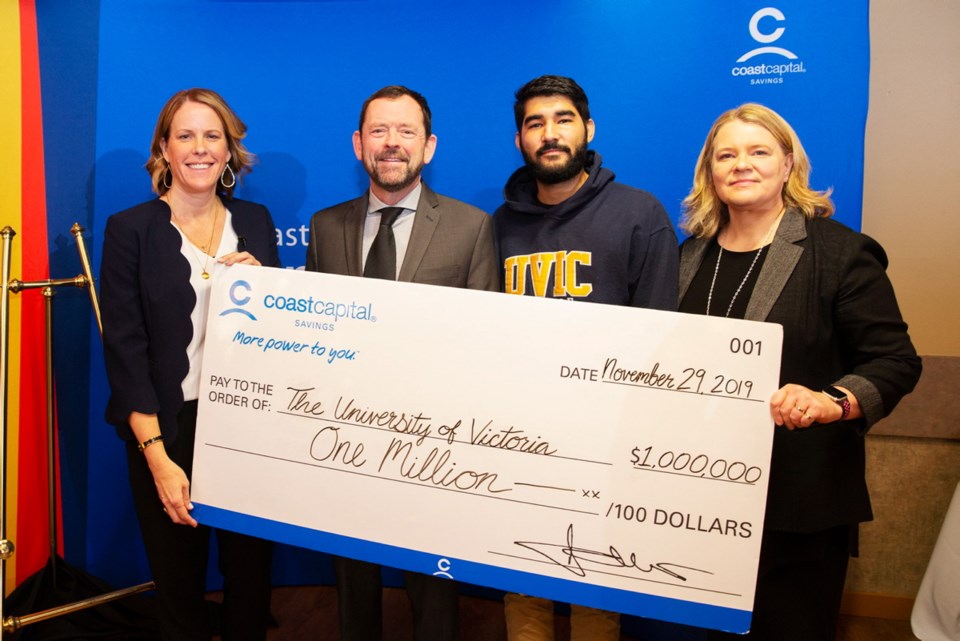The single largest donation ever made on the Island by the country’s largest credit union will give the University of Victoria’s on-campus business-idea incubator long-term stability and the chance to expand its programs.
The Coast Capital Savings Innovation Centre was handed a cheque for $1 million from the credit union Friday, which will ensure over the next five years the centre can continue its work to help students from all faculties develop their business ideas.
Jerome Etwaroo, associate director of the centre, said Coast Capital’s five-year commitment of funding is a game changer. “That is critical ... it gives us a long runway that lets us explore new opportunities,” he said.
He suggested it allows the centre to be entrepreneurial itself by letting it “try out new programs to see what works, reiterate and keep going.”
Etwaroo said in a rapidly changing environment it will allow the centre’s programs to be more nimble and responsive to changing dynamics.
Some of the new funds will be used to expand existing services and draw more women entrepreneurs and under-represented groups into the program. “This provides us a significant resource to expand and do more,” he said.
The centre has already done a lot of that since it was relaunched three years ago.
The Coast Capital Savings Innovation Centre replaced the three-year-old ICE project in 2016 with a new mandate and focus and a broader appeal than its predecessor. ICE was initiated in 2012 by the Gustavson School of Business, and expanded the following year across campus. The idea was to provide tools, expertise and space on campus to help entrepreneurs develop their ideas.
University of Victoria president Jamie Cassels said since it was relaunched, the centre has supported more than 500 UVic student entrepreneurs, kicked in $200,000 in seed funding for pitching competitions, prototypes and product development and helped launch more than 70 start-up businesses.
“This initiative fully activates our commitment at the university for engaged learning, hands-on experience, knowledge mobilization and positive impacts for both students and ultimately for communities,” he said, adding it helps take learning beyond the classroom.
That’s been made possible in part by Coast Capital, which has contributed more than $500,000 for the centre since 2016 to provide seed money for prototypes, business-plan competitions and creating learning opportunities for co-op terms for students working on their own business ideas.
The money is seen as an investment in the future, said Coast Capital’s chief member experience officer Tracy Arnish.
“These are the change makers of tomorrow and represent the fuel for our economy,” she said. “We are thrilled to be announcing we are extending our participation with the university.”
Juan Orrego, chief executive of start-up Cuboh, which offers online ordering, payment and delivery solutions for the restaurant industry, said the centre is “90 per cent” why the company is still a going concern.
The 2018 graduate of the Gustavson School said none of their development and evolution — they will have 19 employees by the end of this year — could have happened without the support to develop the product.
“The money [donated] is put to great use here,” he said.
Etwaroo said each year they see as many as 200 students walk through their doors with an idea. Of those, about 70 may have an idea that can be fleshed out, and anywhere between 10 and 20 may carry on to become start-up businesses.



